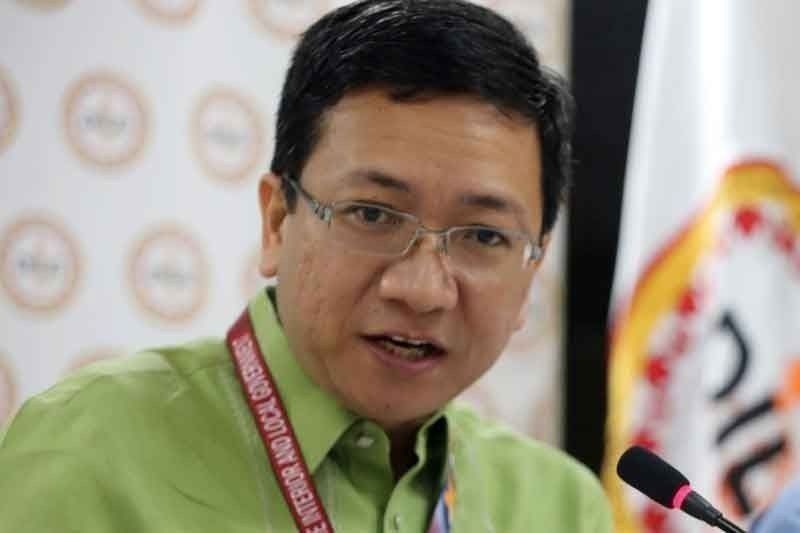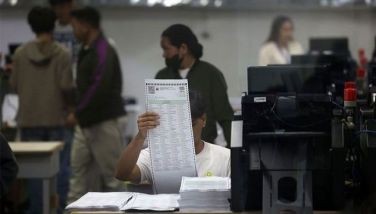DILG, UP agree to review 1992 accord

MANILA, Philippines — The Department of the Interior and Local Government (DILG) and the University of the Philippines agreed yesterday to review a 1992 agreement banning the entry of police officers in UP campuses without prior notice.
The decision was reached at the end of an hour-long meeting at the Philippine National Police (PNP) headquarters at Camp Crame in Quezon City.
Present during the meeting were UP president Danilo Concepcion and chancellor Fidel Nemenzo.
DILG spokesman Undersecretary Jonathan Malaya described the meeting as cordial, adding that both sides agreed to create a technical working group (TWG) which will review provisions of the accord.
“We have two options, amend the UP-DILG agreement or create a new agreement,” Malaya said in a phone interview.
Malaya said there are some provisions of the agreement which are “unconstitutional” but stopped short of mentioning them.
Both sides agreed that some parts of the accord are no longer applicable, stressing the need to beef up security presence on university campuses, particularly at UP Diliman in Quezon City where commercial establishments have sprouted in the past years, making it a target for criminals.
Another issue which the two sides want to resolve is the presence of alleged front organizations of the Communist Party of the Philippines (CPP) in UP that recruit students to join the armed struggle.
Malaya clarified they only want to address the recruitment and “brainwashing” of students to become rebels and not expressions of dissent against the government through peaceful protests.
“Let me emphasize that both sides respect the right of UP faculty members and students to criticize the government. Protesting is respected in our Constitution,” he said, adding the issue is the intent to recruit combatants.
The accord was signed by then UP president Jose Abueva and former DILG chief Rafael Alunan after the enactment of Republic Act 6975, which created the Philippine National Police and placed it under the DILG.
Last Thursday, officials of UP and the Department of National Defense (DND) met and recommitted to protecting academic freedom and enforcing national laws while ironing out differences over the termination of the 1989 agreement that prevents the uncoordinated entry of military personnel into UP campuses.
Commission on Higher Education (CHED) chairman J. Prospero De Vera III facilitated the first dialogue between Defense Secretary Delfin Lorenzana and Concepcion since the DND unilaterally abrogated the agreement last month.
“The dialogue afforded the key leaders the opportunity to discuss the way forward and possible areas of cooperation on how both institutions can promote their mutual aspirations to ensure a safe and secure environment conducive to learning,” read the joint statement signed by the three officials.
“The parties agreed and look forward to subsequent meetings to continue the dialogue,” it added.
Officials, however, did not release specific details on what was discussed, as well as the schedule of the next meeting.
De Vera expressed gratitude to Lorenzana and Concepcion for their openness to sit down and talk about their concerns and observations on the DND-UP accord.
“As I have said in my previous statement, both DND and UP have publicly stated their continuing commitment to protect academic freedom, promote the welfare of students and enforce national laws – all embodied in no less than the Constitution itself,” he added.
The dialogue was also attended by DND Undersecretary for defense operations Cesar Yano, Armed Forces of the Philippines (AFP) spokesman Maj. Gen. Edgard Arevalo, UP vice president for public affairs Elena Pernia and CHED executive director Cinderella Filipina Benitez-Jaro.
The CHED chief said they will also host dialogues between the military and other public and private higher education institutions (HEIs) to find common ground in ensuring the protection of students while upholding academic freedom.
DND spokesman Director Arsenio Andolong said the dialogue between the parties was fruitful and the department expressed its openness to listen to the position of the UP administration and “move forward and strengthen our collaboration with academic institutions.”
Encouraged by the development, newly installed AFP chief Lt. Gen. Cirilito Sobejana said: “We will do the same with other institutions.
This thing will be resolved through dialogue. If we speak independent of one another, avoid dialogue, we won’t reach a point of reconciliation or convergence.”
Meanwhile, Sen. Leila de Lima introduced a measure seeking to uphold academic freedom in UP to ensure that exchange and expression of ideas are free from intimidation from coercive forces of the state within the university premises.
In filing Senate Bill No. 2035, an amendment to Republic Act 9500 (The University of the Philippines Charter of 2008), De Lima seeks to enact and make permanent the UP-DND Accord of 1989.
“This bill prohibits military operations within the campuses, except under conditions of lawless violence, invasion or rebellion, and during civil defense operations upon invitation by UP authorities,” she said.
Sen. Panfilo Lacson said Lorenzana should be commended for taking a step backward in agreeing to a dialogue with UP officials “in finding a common ground to resolve the issues involving the state’s security concerns and the UP alumni’s time-honored academic freedom.”
#DefendUP Network
Today, UP alumni will gather at the university’s flagship campus in Diliman, Quezon City for the launch of #DefendUP Network, an initiative to unite all efforts and initiatives of the UP community to uphold and defend academic freedom.
“We share the common principle that UP is and must remain a safe space for free thought, expression, criticism and dissent,” the network said.
“We are united in upholding the 1989 UP-DND accord and demanding its reinstatement,” it added.
The solidarity night will feature speeches and performances from prominent alumni, including National Artist for Music Ryan Cayabyab, scriptwriter Ricky Lee, theater actress Monique Wilson, singer Bayang Barrios and artist Juan Miguel Severo.
Careful with red-tagging
Yesterday, Sobejana said the military would be more careful and precise in identifying enemies of the state under his leadership.
Interviewed by ANC, he addressed the issue of red-tagging by saying: “We (military) should be extra careful lalo na sa pagsasalita (especially in what we say). We should be very accurate in determining the enemies of the state.”
Sobejana said he had discussed the matter last Thursday in his meeting with AFP officials and emphasized the need to gain friends rather than create enemies among the citizens they’ve sworn to serve and protect.
“I do believe that for us to win this war (against insurgency), we should not just make ourselves bigger but make the enemy smaller,” he said. “So it’s better to create friends than creating enemies. Besides, we are mandated to serve the people so we should not appear as the enemy of the people.”
“We should be very careful (in red-tagging people) because the burden of proof is on us... if we talk a lot while we have no evidence in our hands,” he added in mixed English and Filipino.
The new AFP chief also distanced the military from the public tirades of Maj. Gen. Antonio Parlade against a journalist who wrote a story on a petition against the Anti-Terrorism Law.
“He is part of the armed forces, but na-designate siya. We need to discuss all these things to thresh it out,” Sobejana said, referring to Parlade being the designated spokesman for the National Task Force to End Local Communist Armed Conflict (NTF-ELCAC).
Sobejana underscored that Parlade, in red-tagging the Inquirer.net reporter as a propagandist and threatening her with charges, was speaking for the NTF-ELCAC and not the AFP.
He said he would discuss the matter personally with Parlade, while emphasizing that the military should not be involved in threatening its constituents.
Meanwhile, Lacson warned that Parlade’s threats to use the Anti-Terrorism Law against the reporter could jeopardize the executive branch’s efforts to defend the constitutionality of the controversial statute before the Supreme Court.
Lacson, who authored and sponsored the law as chairman of the Senate committee on national defense and security, said: “At a time unity is needed against threats such as terrorism, actions that threaten to divide are the last thing our country needs.”
“Accusing a journalist of ‘aiding the terrorists by spreading lies,’ assuming that such comment was accurately attributed to him (Parlade), surely does not help the government to convince the magistrates of the Supreme Court to rule in its favor,” he added. – Janvic Mateo, Michael Punongbayan, Cecille Suerte Felipe, Romina Cabrera, Paolo Romero
- Latest
- Trending































